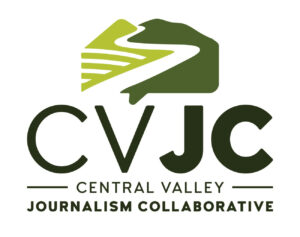CVJC Response to the Google-California Deal

IN response to the deal announced by Governor Newsom and Assemblymember Buffy Wicks, CVJC Executive Director Alma Martinez and Executive Editor Joe Kieta commented:
On Wednesday, closely watched state legislation that would require big technology companies to pay news publishers for the use of content was shelved for a secret deal that was struck between lawmakers and Google. While we’re certainly pleased that there is some movement to get Big Tech to pay for local news, this agreement falls far short of a long-term solution.
The deal does serve to establish that the demise of local news is a calamity and is real. But the funding generated from Google and the proposed state investment moves the needle only slightly when bold action is required. This effort needs to open the door to a legislative solution that ensures communities will have access to reliable news and information now and into the future.
As a news leader in the Central Valley, CVJC is committed to not only informing communities but also elevating the importance of this region to the health of the state, country and world. The Central Valley often gets overlooked and CVJC will make sure that the region has a seat at the table.
Some important points:
-
- Funding is not enough. Annual operating expenses for a four-journalist startup newsroom in the Central Valley hover around $550,000 including benefits. Funding from the Google deal would only defray as much as $40,000 a year (figuring a generous $10,000-per-reporter definition of the potential funding). That doesn’t significantly change the game.
- New nonprofit, nonpartisan news outlets should be prioritized. Funds should not only go to established news organizations. Well-funded, community-based nonprofit startups like The Merced FOCUS should be eligible. They are unencumbered by a failing legacy business model and are poised to serve well into the future.
-
- Will taxpayers be protected? All news produced through an investment of public funds should not appear behind paywalls. The goal should be to improve the breadth and scope of local news and not to pad the bottom lines of legacy news organizations owned by faraway hedge funds. This is a huge miss for the existing California Local News Fellowship program, which is administered by UC Berkeley– state tax payers are fronting the bill for these reports and should have access to news produced by these funds.
-
- Existing public media should be supported. Absent from the deal is any funding for public radio and television. Both play growing roles in local news as established media shrink and serve diverse populations that access news through radio.
-
- CSU and other universities should help administer funding. UC Berkeley should not control the entirety of this program. CSUs and community colleges touch nearly every corner of the state and prepare more journalists and should not be left out.
-
- Board of directors must represent all regions of California. UC Berkeley must be transparent in how this board is chosen and it should include representation from nonprofit local news outlets and those that serve multilingual populations. Established journalism funders, including community foundations and social sector/civil society organizations also should have a seat at the table.
The 7.2 million people living in the Central Valley’s 15 counties play a critical role in the state’s present and future – with an agriculture sector that feeds the state, nation and world. CVJC is committed to ensuring our communities are part of the conversation to rebuild and sustain local journalism that empowers residents to make informed decisions about their communities.
